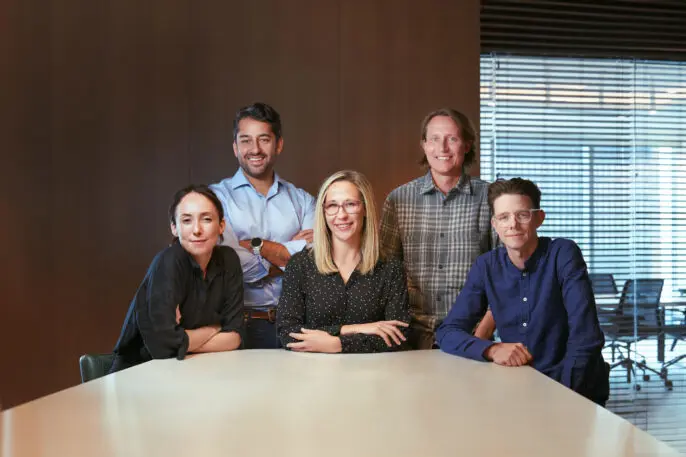A “bio-ingenuity” startup removing forever chemicals from water. An AI company building new models and chips inspired by neuroscience and physics. A biotech figuring out how secreted proteins can be marshaled to develop drugs to address chronic diseases.
These are “deep tech” startups—ones focused on the kind of technically challenging ideas that were once the bedrock of venture-capital investment but are now a niche within the larger world of VC funding. They’re also a few of the bets that Bison Ventures, a new Seattle-based firm founded by veterans of Cascade Asset Management Company, the investment firm for the Bill & Melinda Gates Foundation Trust and the Gates family, has made out of its first $135 million fund, which it’s announcing today, November 7.
“What we saw in the venture capital landscape is really a gap for funding for deep tech companies,” says founding partner Tom Biegala, who worked as an engineer before turning to an investing career. “What you see in Silicon Valley for the most part today is a lot of focus on software and more digital-focused technologies. We think that there’s a fantastic return to be made in deep tech as well as a fantastic set of impacts that you can have by bringing some of these technologies to market and commercializing them.”

Deep tech has seemingly been having a bit of a moment in the investing world, with the rising interest in climate tech, next-generation nuclear power, and such catalyzing events as the internet’s obsession with room-temperature superconductors last summer. “There has been a significant rise in interest in the category broadly,” says Ben Hemani, who is also a founding partner. “But I don’t know that that necessarily reflects an increase in the bench of deep experience in the category broadly. So you might have some mismatches there. Tom and I both started our investment careers in the early days of cleantech, where that phenomenon certainly led to some challenging outcomes.”
Adds Biegala: “We’re deeply technical. I started off my career going into the fab, manufacturing chips at Intel. I would ask the question, how many generalist investors have stepped foot into a silicon fab? In their lifetimes, even as guests? I think that the answer would be very close to zero, or certainly single digits.”
Biegala and Hemani see Bison differentiating itself as well in its interdisciplinary approach. For example, Bison’s first investment was in Juvena Therapeutics, the company working on unlocking secreted proteins to regenerate tissue among other things. “Within AI and computational drug discovery,” says Biegala, “there are very sophisticated algorithms out there [and] there’s a base level of data that you can use to bootstrap those algorithms. But to really get to the next level there you need far more rapid throughput experimentation, whether that’s novel robotics assisted assays and testing methodologies that you can use to then generate more data to reinforce your AI models.” He believes that that marriage of robotics with biology is emblematic of Bison’s approach.
Bison’s focus is on “early-stage” investments, which Hemani defines as between the kind of “blue sky innovation” that makes more sense for government and university funding and companies with eight figures in revenue where there’s no risk that scares away a generalist VC. In other words, companies where the science is proven but its commercial viability is not. The firm has invested in six companies so far, making deals at a rate of about one a quarter, a cadence which it expects to maintain. Of those, five of the six startup CEOs are from an underrepresented group, and three of them are women.
“That’s just simply a reflection of the fact that great ideas come from multiple different backgrounds and these are non traditional businesses,” says Biegala. “You see a very different type of diversity profile across our portfolio than you would probably see in a traditional Silicon Valley-based venture fund.”
Recognize your brand’s excellence by applying to this year’s Brands That Matter Awards before the early-rate deadline, May 3.
